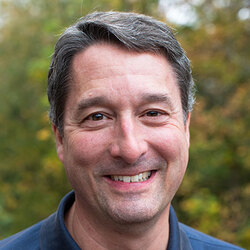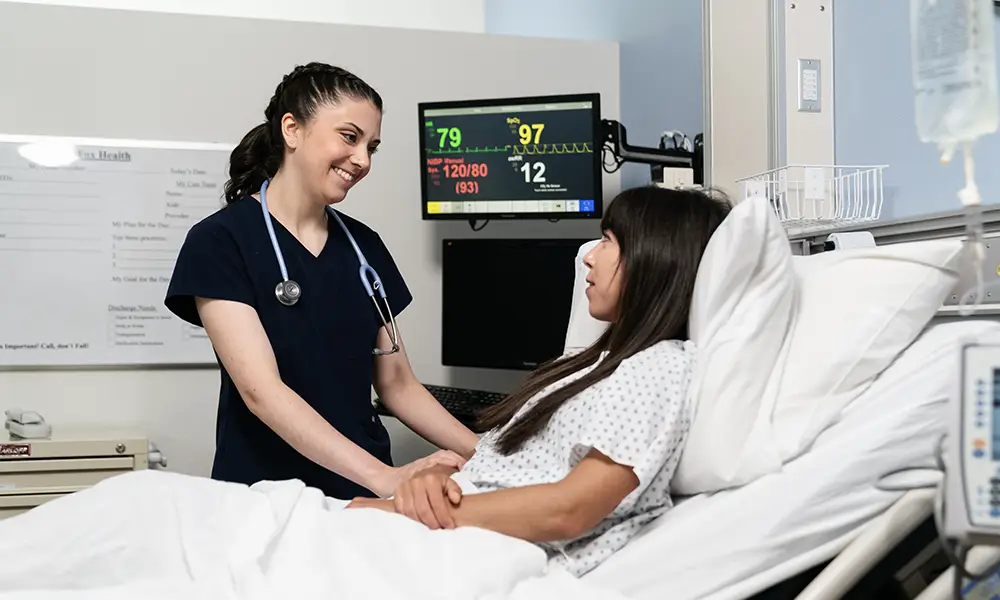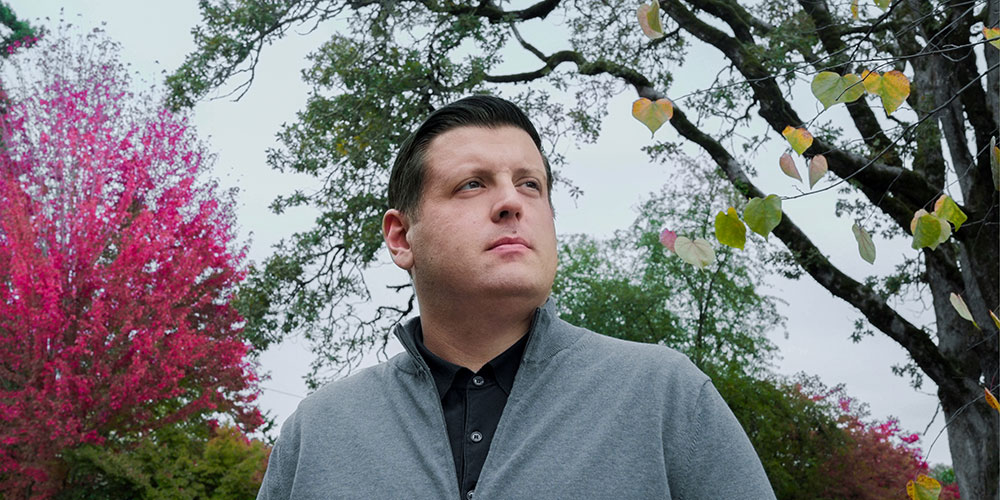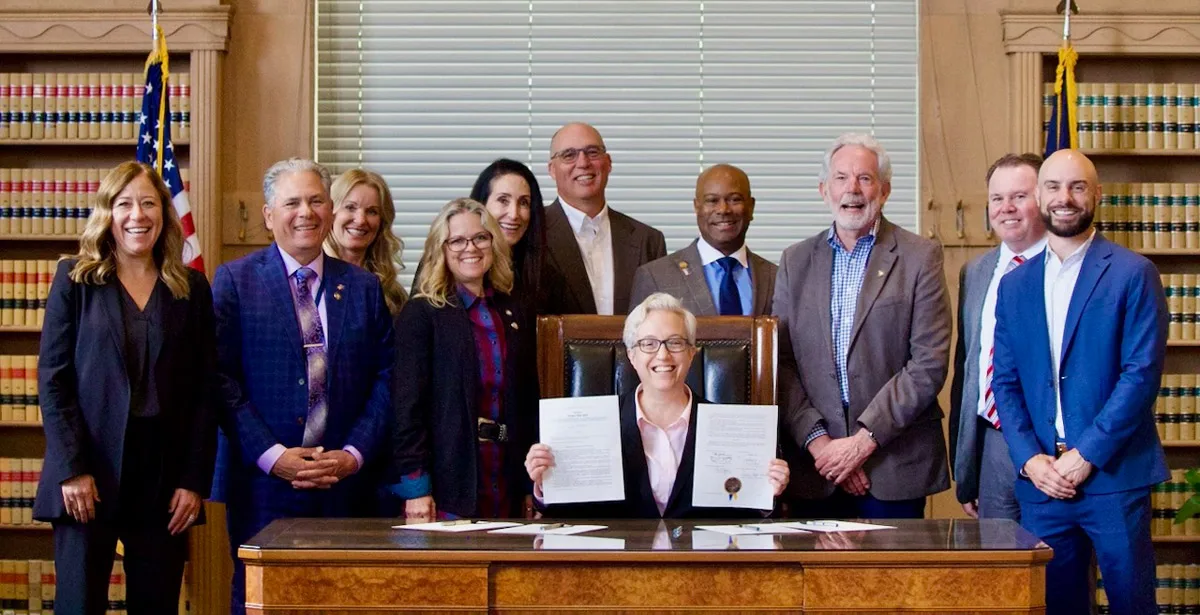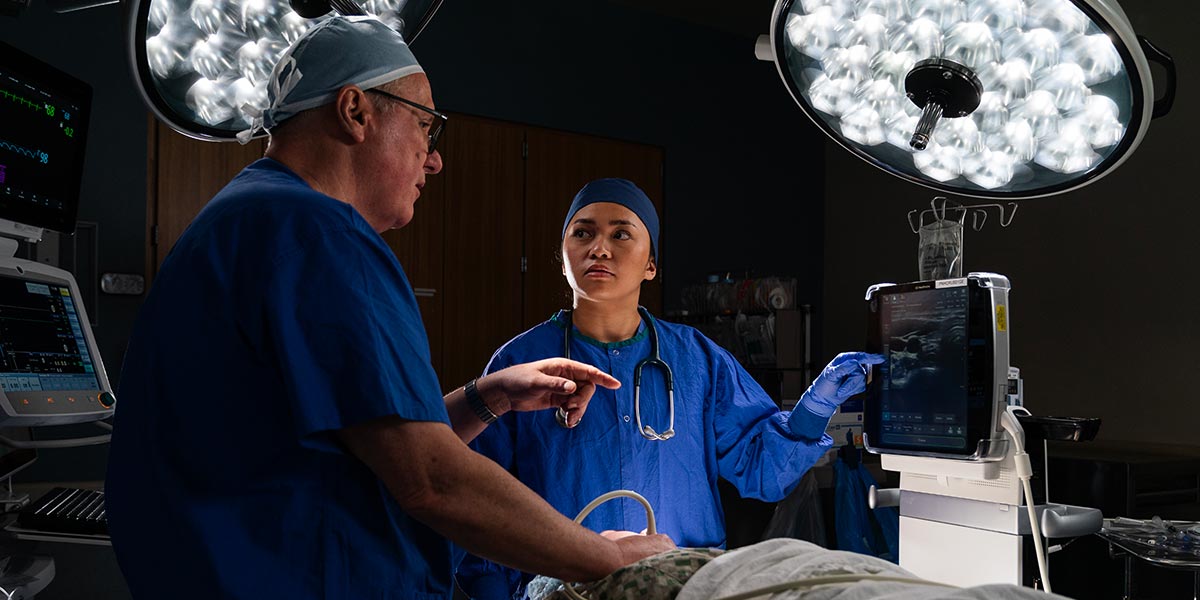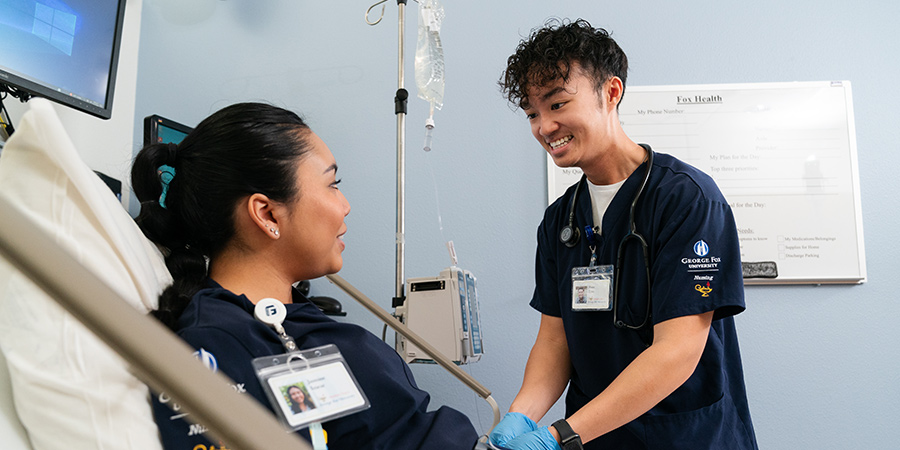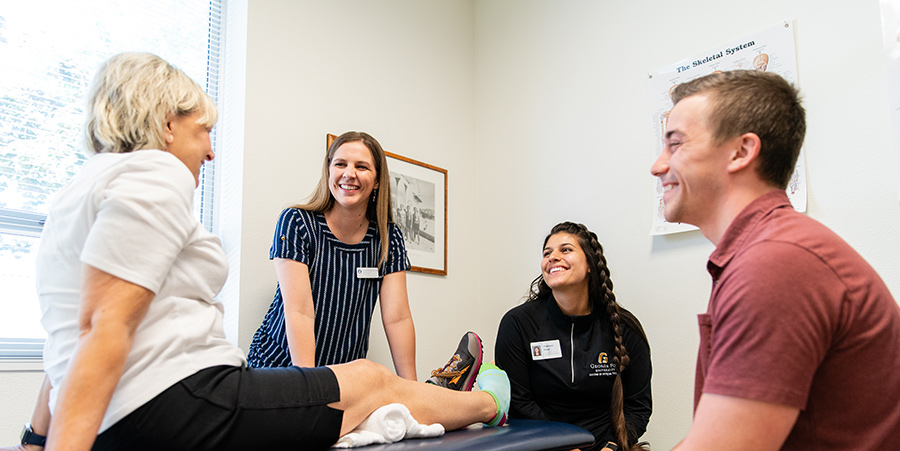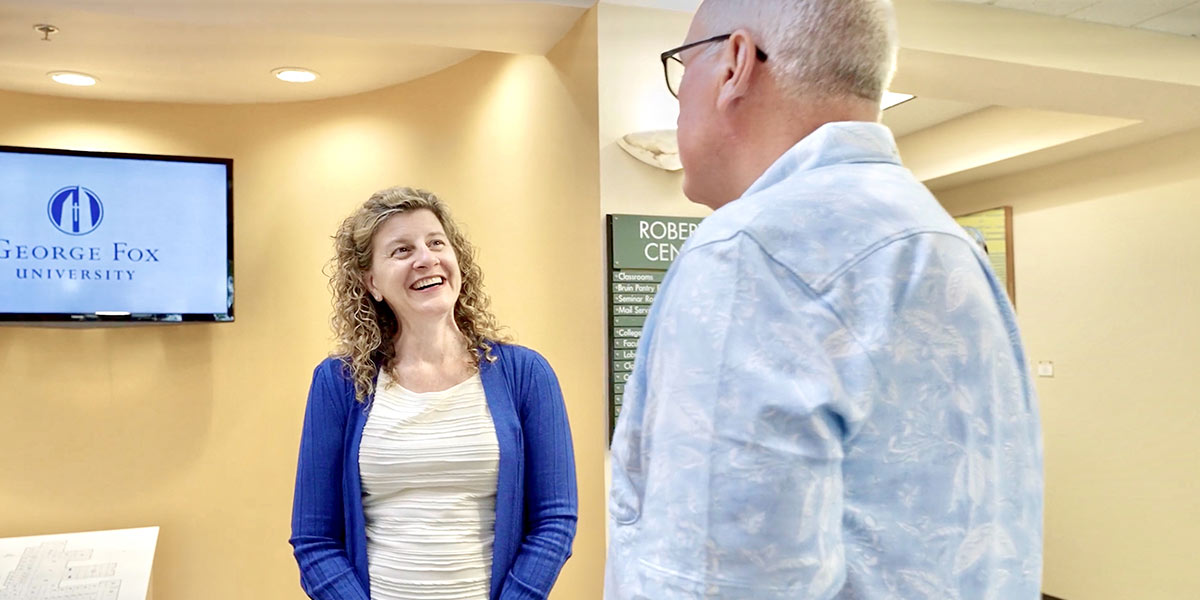
A Holistic Approach to Nursing Education
by Sean Patterson
Pam Fifer, dean of the College of Nursing, is living out her lifelong dream of leading a George Fox nursing program that considers all aspects of a patient’s condition – be it physical, psychosocial or spiritual.
What inspired you to pursue a career in nursing?
Ever since I was a small child, I wanted to be a nurse or teacher. We had a large extended family, so I was around a lot of great aunts and uncles, grandparents and great-grandparents. I saw people at different stages in life dealing with sickness and disease, and I wanted to do something to help them. I just liked the idea of being able to take care of people.
When I went off to college I knew I wanted to do nursing. I became an oncology nurse. That was my passion. My drive was to work with oncology patients, which led to helping patients and their families in general. I spent about 12 years doing acute care nursing and administration in hospitals, and then got the bug to teach. I worked for the community college in Salem for about 12 years, and then I was offered the opportunity to serve at George Fox. I’ve been here for seven years.
So, why the decision to shift to nursing education?
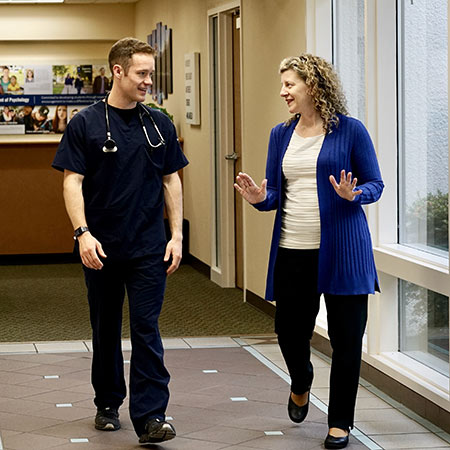
Nursing education allows me the opportunity to help the next generation serve holistically and to be the hands and feet of Christ. It’s a privilege to be able to walk alongside students and be a mentor. I’m walking alongside them, helping facilitate their growth as a person and as a nurse, and I get to enjoy those “light bulb moments” as they grow in this profession. It may happen when they learn something new or are able to connect their faith in the work that they’re doing – or perhaps just the way they connect with their patients.
It’s exciting to watch their growth and to see that nurse blossom into whatever role they’re going to fill, whether it’s at the bedside or a leadership position.
What appealed to you about working at George Fox?
I was excited to have the opportunity to lead a baccalaureate nursing program at a university that incorporates faith and Christianity throughout the entire program. The faith integration piece was something I couldn’t do at a public institution. To be at a place where I was able to help prepare the next generation of nurses to be the hands and feet of Christ was just the ultimate job for me.
What differentiates the George Fox nursing program from others?
At George Fox, we educate students to provide holistic care – to help meet all of their patients’ needs, whether it be physical, psychological, social, or spiritual in nature. The faith component is so important. Without it you can’t provide holistic care to your patients.
Our students understand that every person they care for has spiritual needs. Part of what we do at George Fox is help our students open up that aspect for their patients as a way of helping them feel heard, be seen, and understood. Our nursing students view their patients with a holistic mindset.
Do you have a teaching philosophy?
When I first meet a student and start mentoring them, I have to get to know them. I find out more about them – who they are, what they bring to the table, what life experiences they’ve had – and then I bring in my experiences. I begin to ask deeper questions, such as, “What areas can I help you grow? How can I challenge you to help you get to that next level?”
I do it in such a way that I help build their confidence and leadership skills, and at the same time help them develop a deeper empathy. It’s that relationship of walking with them, being there as a guide, that I find fulfilling.
What is the significance of the newly launched CRNA program?
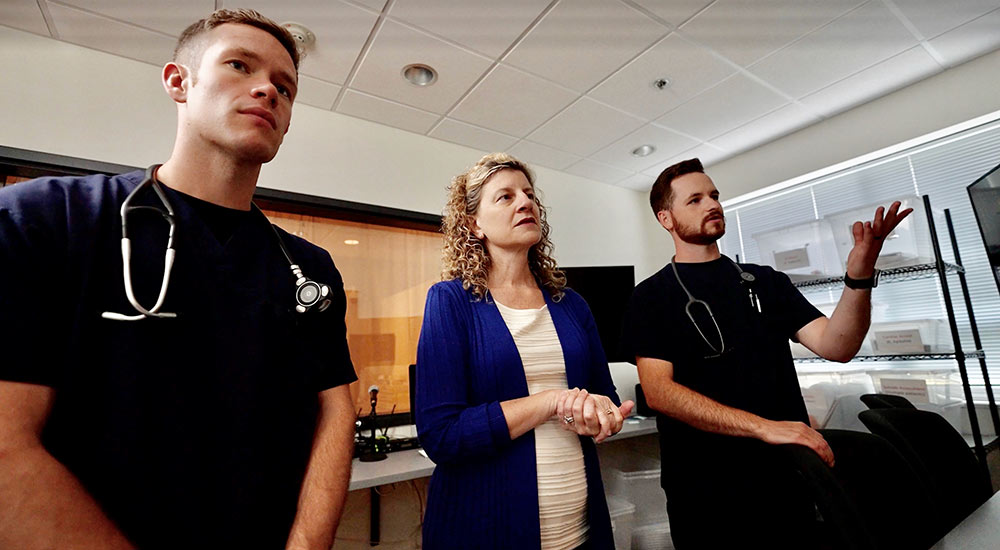
As nurses, we often run in and help support in the areas where there’s the greatest need, and CRNAs are answering the call by providing 80% of the anesthesia care in rural parts of Oregon. They serve in those communities so patients don’t have to travel two or three hours away for their surgery.
Our CRNA program is going to be very focused on rural healthcare, trying to meet needs where the needs are the greatest. Our commitment is to place all of our CRNA students in residencies within Oregon, at least initially.
The CRNA program is a high-tech, high-touch program that will help many patients across Oregon, across the country, and possibly globally. Part of our mission is to incorporate the Christian faith throughout the entire program and help students grow in their own spiritual walk. We also help them incorporate spirituality in the care they provide to every single one of their patients.
Additionally, we have a program director, Bill Prosser, who has done a fellowship in acute surgical pain management. This includes ultrasound guided regional anesthesia, non-pharmacological treatment of pain, and opioid sparing techniques. Those are specialty skills that not every program can offer. We also have a team that will find the residency sites that students will need.
Tell me about the facilities the program will offer.
The space we’re creating at the Portland Center for our Doctor of Nursing Practice programs is going to be a state-of-the-art simulation space. We’ll have three high-tech OR rooms, two pre-op rooms, several debriefing rooms, and an ICU space along with a skills lab so students can practice during their immersions. They’ll learn procedural aspects of the job and get experience in high-risk scenarios so they will be better prepared for their residencies.
You hear about the emergence of interprofessional education in healthcare programs. How will George Fox integrate this?
Our CRNA students will get an interprofessional education by working with physical therapists, occupational therapists, psychologists, social workers, counselors, and other nursing students throughout their time here. This will prepare them to be even better nurses because they will have the ability to communicate and understand other professions with which they work. They will provide even better patient care because the whole team is working together for the good of the patient from whatever perspective is best for the patient at that moment. This collaboration improves overall outcomes.
How is your partnership with Providence benefitting the program?
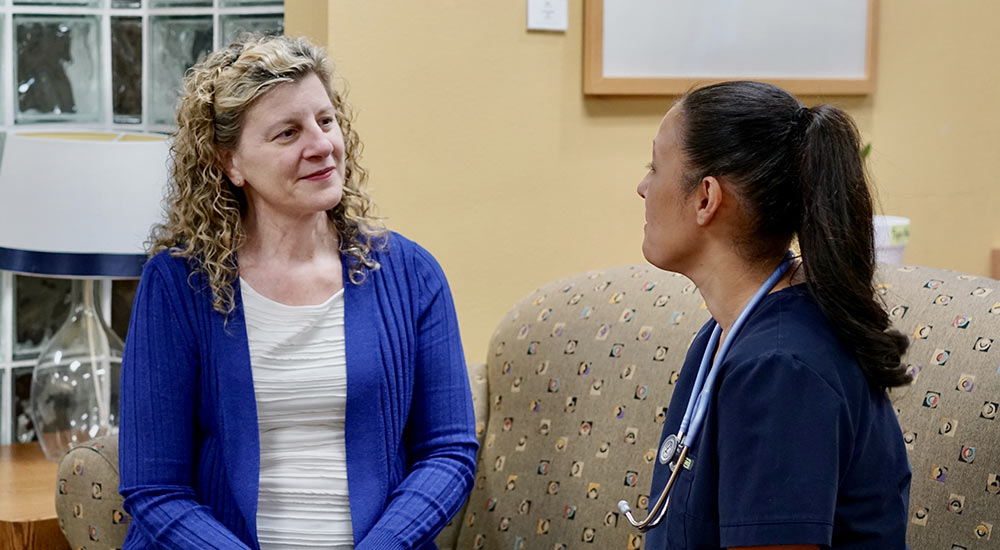
Our partnership with Providence for the CRNA program is exceptional. Our students will get opportunities to work in any one of the eight Providence hospitals in Oregon as part of their residency experiences. Providence is supporting the program director position initially, and they are helping us with some of the equipment and technical support that we need in our simulation center. As a result, our students will have access to some of the highest tech and the most current systems they will see in the environments where they do their residencies.
What is your vision for the CRNA program?
The launch of the CRNA program underscores our ongoing commitment to address a critical shortage of clinicians in the region, particularly in underserved areas where people lack access to essential medical care.
The mission of the College of Nursing is to cultivate exceptional clinicians, leaders, scholars and innovators. We prepare graduates to integrate mind, body, and spirit to positively impact the world, embodying the service, integrity and compassion exemplified by Christ. Our CRNA graduates will lead in their communities. They will serve their patients. They will make healthcare better for the communities where they live and beyond. And they will bring their Christian faith wherever they serve.
